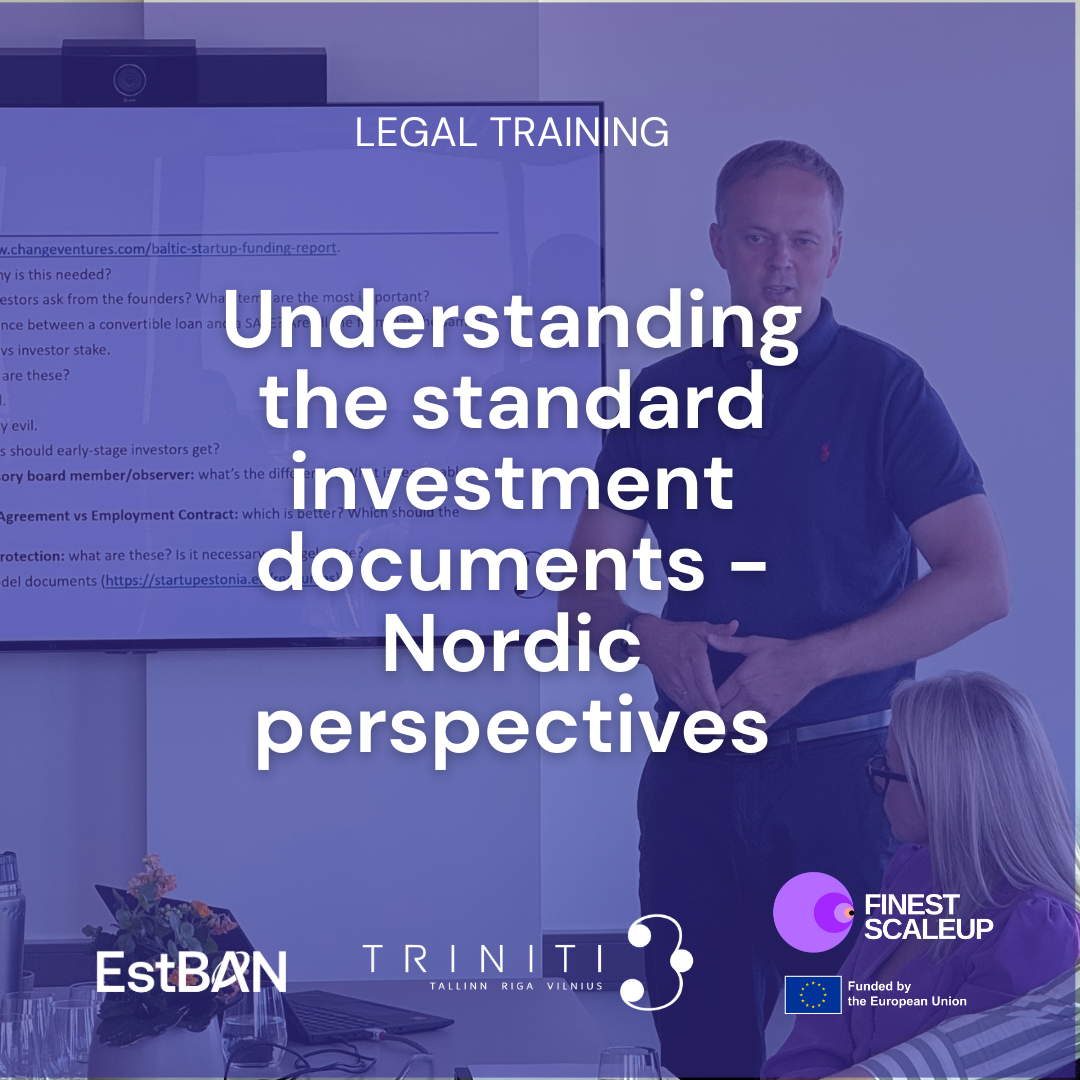This article was originally published in startupper and investor Kristjan Raude’s blog. We publish only half his invaluable thoughts, so in order to read longer, please check out Kristjan’s original blogpost. If you have a startup or plan to establish one – this is your call to read this.
Picture this: you’ve got a billion-dollar idea – a real game-changer. But when it comes to securing funding, you’re stuck. The truth is, an idea without execution isn’t worth a dime. I’ve evaluated over 1,500 pitch decks, invested in 30 (impact) startups, and mentored or advised more than 100 others. I’ve seen startups soar after their first pitch and others crash and burn before the Q&A even begins. Investor readiness is what separates the two.
According to the Sifted Survey 2024, 85% of startup founders reported experiencing high stress over the past year, with fundraising cited as their biggest challenge.
I’ve been there myself – walking into pitch meetings thinking I had it all figured out, only to realize I’d brought a knife to a gunfight. Trust me, there’s no worse feeling than realizing the only person impressed with your pitch is you.
Here’s what I’ve learned since 2015, sitting on both sides of the table: getting an investor’s attention isn’t about dazzling them with buzzwords or a glossy deck. Those days are over. It’s about showing them you’re the kind of founder who’s thought through the details, done the work, and can execute like a pro. Investors can spot a lack of preparation from a mile away – it’s their job, and they’re damn good at it. If they do? Well, let’s just say there’s a reason “ghosting” is a common term in the startup world.
In this post, I’ll outline why investor readiness is non-negotiable and exactly what you must do to get there. I’ll walk you through the key elements of preparation, share the most common mistakes (including one I’ll never forget), and give you a checklist to ensure you’re ready to impress. Follow this roadmap, and you’ll improve your chances of success by 10x.
Thank me later—or better yet, thank yourself for doing the work. Let’s dive in.
Investor Readiness: The Difference Between Getting Funded and Getting Ghosted
I’ve lost count of how many startups I’ve seen pitching their hearts out – ˇonly to hear a polite, “We’ll get back to you” (they won’t) or, worse, radio silence. Why does this happen? Because they weren’t ready. They didn’t have the numbers, the strategy, or the operational chops to back up their big dreams.
Here’s a little secret: most investors are on autopilot during those early-stage meetings. They’re scanning for red flags, mentally ticking off boxes, and deciding within minutes whether you’re worth a second look. If you can’t nail those basic hygiene factors? You’re out.
No unicorn dreams. No pot of gold at the end of the investor rainbow. Just wasted time, money, and frustration.
The ROI of Investor Readiness: Seven Benefits You Can’t Ignore—and Risks You Can’t Afford
1. Increased Likelihood of Securing Funding
Benefit:
A well-prepared founder exudes confidence and professionalism, making investors more likely to trust and invest in their business. Being able to clearly articulate your vision, demonstrate traction, and provide key metrics gives you a competitive edge.
Risk of Not Being Prepared:
You risk losing investor trust and potentially missing out on funding opportunities. Unpreparedness makes you appear unserious or disorganised, driving investors toward startups that seem more buttoned-up.
2. Faster Fundraising Process
Benefit:
Preparing all your documents, financials, and pitch materials ensures a smoother, quicker fundraising journey. This minimises back-and-forth communication and accelerates the momentum and timeline to securing investment.
Risk of Not Being Prepared:
Prolonged fundraising delays can cause you to miss critical growth windows or run out of money. Worse, if investors perceive the delays as a sign of disorganisation, they might lose interest.
3. Enhanced Credibility with Investors
Benefit:
Preparation signals professionalism and competence, earning credibility and fostering stronger investor relationships. This credibility can pay off not just in the current round but also in future fundraising efforts.
Risk of Not Being Prepared:
A lack of preparation risks damaging your reputation in the investor community. A poor impression with one investor can spread, making it harder to secure meetings with others.
4. Clearer Vision and Strategy
Benefit:
Becoming investor-ready forces you to refine your business plan, clarify your goals, and align your team around a well-articulated growth strategy.
Risk of Not Being Prepared:
You risk appearing unfocused or directionless, making investors doubt your ability to execute. A lack of strategic clarity can also lead to costly missteps in business operations.
5. Strengthened Business Foundations
Benefit:
Investor readiness requires you to review and refine critical areas of your business—operations, finances, governance—building a solid foundation for growth and scalability.
Risk of Not Being Prepared:
Neglecting these areas can result in inefficiencies, missed opportunities, or operational breakdowns. Investors conducting due diligence may (and probably will) uncover these weaknesses and walk away.
6. Attracting Right Investors
Benefit:
A well-prepared founder is better positioned to identify and appeal to investors whose goals, values, and expertise align with their startup’s mission—especially critical in impact-driven sectors like climate or sustainability.
Risk of Not Being Prepared:
You risk wasting time pitching to the wrong investors who don’t see the value in your mission or business model. Mismatched investor-founder dynamics can lead to friction post-funding.
7. Increased Team Confidence and Morale
Benefit:
When you’re prepared and articulate a clear vision, your team gains confidence in your leadership and the company’s direction. This alignment boosts morale, focus, and productivity.
Risk of Not Being Prepared:
A lack of investor readiness can sow doubt within your team. They may question the company’s direction or feel unprepared to execute, which could lead to disengagement or turnover.
…
To read further, please go to EstBAN member and long time entrepreneur Kristjan Raude’s blog.




